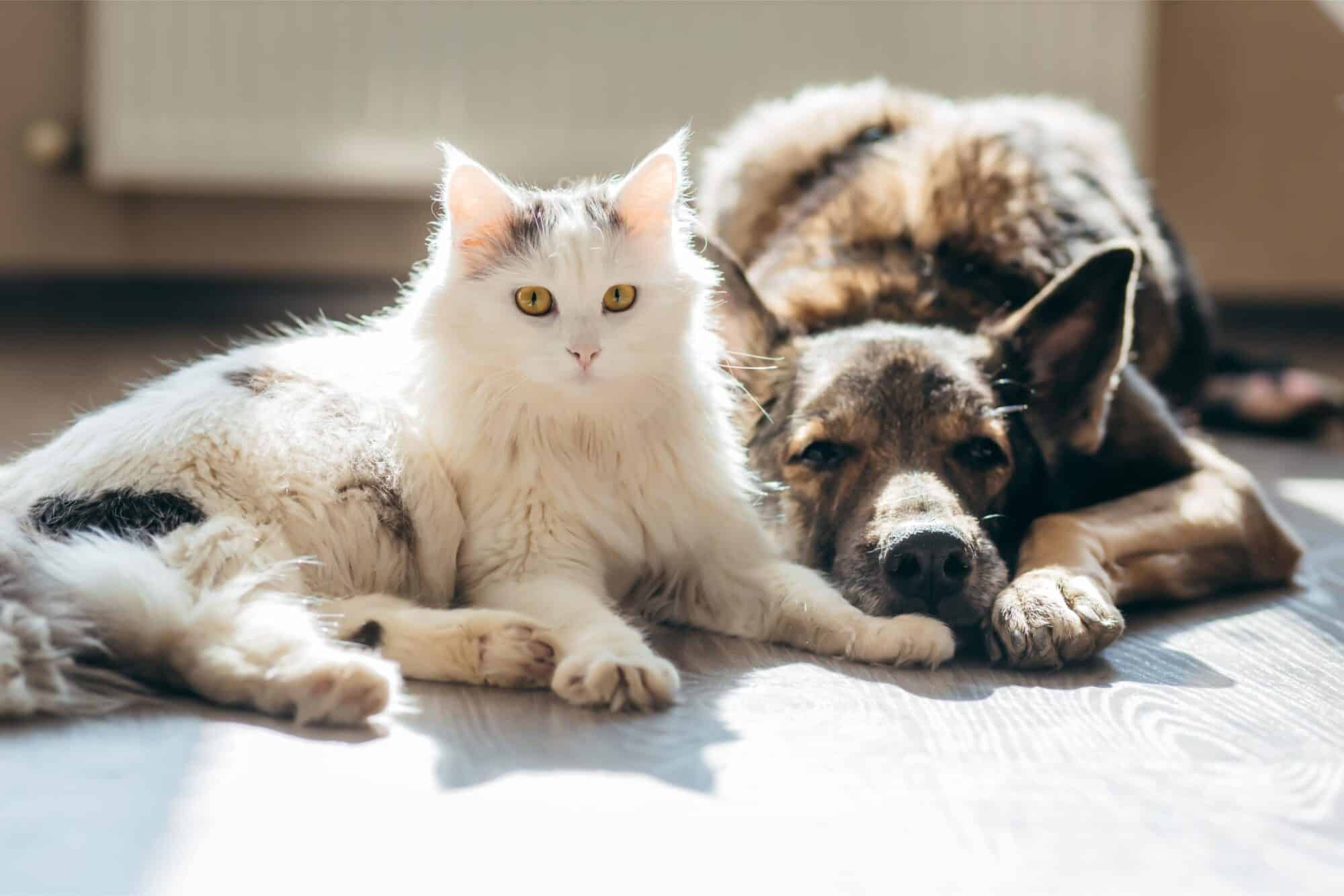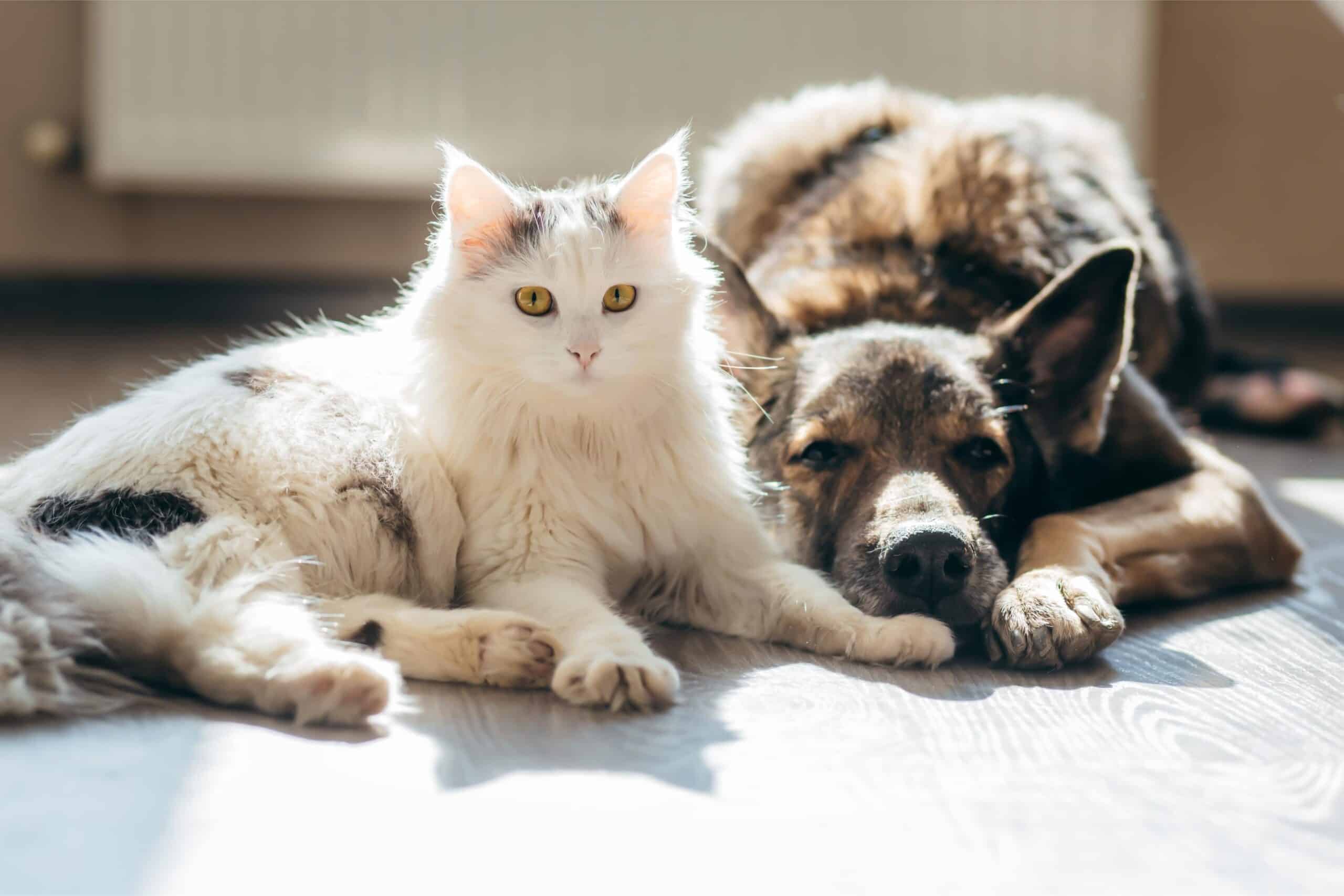Joint Pain and Arthritis in Senior Pets

An active pet is a healthy pet, but what happens when it hurts to move? Many pets suffer from joint pain, although this diagnosis is more common in older pets and larger breeds. The aging process is a lengthy and gradual one, and joint pain and arthritis in senior pets can have subtle symptoms. When you know how to spot what’s going on, straightforward, effective treatment can improve vitality and quality of life.
Don’t Let It Go
Symptoms of joint pain can come and go, depending on activity levels, the weather, and a pet’s general lifestyle. However, untreated pain can worsen over time and may lead to even more severe health conditions.
Some cases of joint pain in dogs are simply due to genetics. Golden Retrievers, German Shepherds, Great Danes, Newfoundlands, Rottweilers, and Bernese Mountain Dogs are genetically predisposed to various joint conditions. Other cases of joint pain in pets can be explained by injuries or improper development in youth.
Degenerative Joint Disease
Arthritis is the result of wear and tear on the spongy cartilage between joints. Over time, the cartilage no longer protects the joints, causing tremendous pain and sensitivity. Most middle-aged and senior pets experience some level of tenderness, but because larger breeds put more weight on the joints, they are prone to the acute symptoms of joint pain.
Catching It Early
Cats will try to hide any signs of pain, and dogs will try to play right through their symptoms. Allowing a pet to continue with their daily routine of running or jumping can make their condition worse. We encourage pet owners to keep their senior pets moving as much as possible, but any of the following signs should be quickly addressed:
- Limping
- Stiffness
- Reluctance to move
- Lethargy
- Licking or biting at parts of the body
- Change in personality (from irritable to aggressive)
- Loss of appetite
- Social withdrawal or depression
Treating Joint Pain in Pets
Examining your pet and discussing their history and lifestyle will help us understand the root cause of their joint pain. Conditions caused by degenerative joint disease is typically treated with a combination of:
- Diet and nutritional supplements, such as omega-3 fatty acids
- Rehabilitation
- Exercise
- Medication
Conditions caused by genetics or injuries can be addressed with treatments above or if necessary, by surgery.
Successful treatment of arthritis in senior pets goes hand in hand with weight loss. If a pet is carrying too much weight on their joints, it is more challenging for them to receive relief.
Keeping your pet moving gives the muscles surrounding the joint the opportunity to get stronger and more protective.
Treatment Options We Offer
- Cold Laser Therapy – We are proud to offer laser therapy as an effective (and incredibly safe) treatment for joint pain and arthritis in senior pets. By increasing circulation to the affected area, laser therapy helps pets recover faster from pain. Treatments are relaxing, relatively quick, and affordable.
- Osteo-Arthritis Pain Injections – We carry FDA approved injections for cats AND dogs that reduce the brain from receiving pain signals from Osteo-Arthritis related pain. Once monthly injections could change your pets quality of life! The medications are called Solensia and Librella.
Please call us at (540) 832-1751 with any questions about joint pain. Our veterinarians are always here to assist you at Crossroads Animal Hospital.

